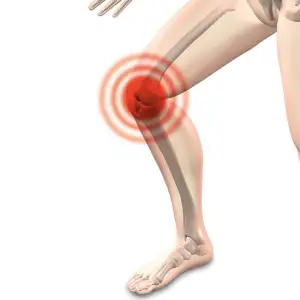Unveiling the Truth: Are Air Fryers Toxic? Exploring Potential Health Risks

- Exploring the Potential Health Risks Associated with Air Fryers
- The Impact of High-Temperature Cooking on Nutritional Value
- Investigating the Formation of Harmful Compounds during Air Frying
- Addressing the Link between Air Fryer Usage and Increased Acrylamide Levels
- Examining the Effects of Air Fryer Usage on Heart Health
- Tips for Minimizing Health Risks while Using an Air Fryer
Air fryers have gained immense popularity in recent years, promising a healthier alternative to traditional deep frying. However, concerns have been raised about the potential health risks associated with their usage. As food enthusiasts, it is crucial to explore and understand these concerns to make informed decisions about our cooking methods. In this article, we will delve into the potential health risks of air fryers, examining their impact on nutritional value, formation of harmful compounds, increased acrylamide levels, and effects on heart health. By doing so, we aim to provide you with the necessary knowledge to enjoy a healthy cooking experience while using an air fryer.
Exploring the Potential Health Risks Associated with Air Fryers
When it comes to air fryers, there have been concerns raised about potential health risks associated with their usage. While these appliances offer a healthier alternative to traditional deep frying, it is important to understand the potential risks involved.
One of the main concerns is the impact of high-temperature cooking on the nutritional value of food. Studies have shown that cooking at high temperatures can lead to a loss of certain nutrients, such as vitamins and antioxidants. However, this is not unique to air frying and can occur with any form of high-heat cooking.
Another concern is the formation of harmful compounds during air frying. When foods are cooked at high temperatures, especially when using oils or fats, they can release toxic substances such as acrylamide and polycyclic aromatic hydrocarbons (PAHs). These compounds have been linked to an increased risk of cancer and other health issues.
Additionally, air frying has been associated with higher levels of acrylamide in foods. Acrylamide forms when starchy foods are cooked at high temperatures and has been classified as a probable human carcinogen by the International Agency for Research on Cancer (IARC).
Furthermore, there are concerns about the effects of air fryer usage on heart health. Some studies suggest that consuming fried foods regularly, even when prepared in an air fryer, may increase the risk of heart disease due to their high fat content.
While these potential health risks exist, it's important to note that moderation and proper cooking techniques can help minimize them. Using minimal amounts of oil or opting for oil-free recipes can reduce the formation of harmful compounds. Additionally, choosing healthier ingredients and incorporating a variety of cooking methods into your routine can help maintain a balanced diet.
In conclusion, while air fryers offer a convenient way to enjoy crispy foods with less oil, it's crucial to be aware of the potential health risks associated with their usage. By understanding these risks and implementing strategies to minimize them, you can make informed decisions for a healthier cooking experience.
The Impact of High-Temperature Cooking on Nutritional Value
When it comes to cooking methods, the impact of high temperatures on the nutritional value of food is a topic of concern. Air frying, which involves cooking food at high temperatures using circulating hot air, is no exception. High-temperature cooking can lead to the loss of certain nutrients in food. Heat-sensitive vitamins such as vitamin C and B vitamins are particularly vulnerable to degradation when exposed to heat for a prolonged period.
Additionally, the Maillard reaction, which occurs during high-temperature cooking, can affect the nutritional composition of food. This reaction between amino acids and reducing sugars results in the browning and flavor development of cooked foods. However, it can also lead to the formation of potentially harmful compounds such as acrylamide and advanced glycation end products (AGEs).
While air frying offers a healthier alternative to deep-frying by using significantly less oil, it is important to consider the potential impact on nutrient retention. To minimize nutrient loss during air frying, it is advisable to cook foods for shorter durations and at lower temperatures whenever possible. Additionally, incorporating a variety of fresh fruits and vegetables into your diet can help compensate for any potential nutrient deficiencies caused by high-temperature cooking methods.
In conclusion, while air frying may offer a healthier option compared to traditional deep-frying methods, it is essential to be mindful of the impact that high-temperature cooking can have on the nutritional value of food. By understanding these effects and implementing strategies to minimize nutrient loss, you can make informed decisions for a healthier cooking experience with your air fryer.
Investigating the Formation of Harmful Compounds during Air Frying
When it comes to air frying, one of the main concerns is the formation of harmful compounds during the cooking process. When food is cooked at high temperatures, such as in an air fryer, certain chemical reactions can occur that may produce potentially toxic substances.
One such compound is acrylamide, which forms when starchy foods are cooked at high temperatures. Acrylamide has been classified as a potential carcinogen by the International Agency for Research on Cancer (IARC). It is formed when sugars and amino acids react in a process known as the Maillard reaction.
Another concern is the production of polycyclic aromatic hydrocarbons (PAHs) during air frying. PAHs are formed when fat drips onto the hot surface or heating element of an air fryer and undergoes pyrolysis. These compounds have been linked to an increased risk of cancer.
To minimize the formation of these harmful compounds, it is important to follow some precautions while using an air fryer. Firstly, avoid cooking foods at excessively high temperatures for prolonged periods. This can help reduce the formation of acrylamide and PAHs.
Additionally, it is recommended to avoid overcooking or burning food in an air fryer, as this can increase the production of these harmful compounds. Using lower-fat ingredients and marinating foods before cooking can also help reduce their formation.
While there are potential health risks associated with air frying, it's important to note that more research is needed to fully understand their impact on human health. In the meantime, practicing moderation and following these tips can help minimize any potential risks while enjoying the convenience and taste benefits of air frying.
Addressing the Link between Air Fryer Usage and Increased Acrylamide Levels
Acrylamide, a potentially harmful chemical compound, has been a major concern when it comes to air fryer usage. Acrylamide forms when starchy foods are cooked at high temperatures, such as during frying or baking. Studies have shown that air frying can lead to the formation of acrylamide in certain foods like potatoes and bread.
Acrylamide is classified as a probable human carcinogen by the International Agency for Research on Cancer (IARC), which means it has the potential to cause cancer. High levels of acrylamide intake have been associated with an increased risk of developing certain types of cancer, including kidney, ovarian, and endometrial cancers.
However, it's important to note that the link between air fryer usage and increased acrylamide levels is not exclusive to this cooking method. Traditional deep-frying and baking also contribute to acrylamide formation. The key factor is the temperature at which these foods are cooked.
To minimize acrylamide formation while using an air fryer, there are several steps you can take. First, avoid overcooking or burning your food as this can significantly increase acrylamide levels. It's also recommended to soak potato slices in water for 15-30 minutes before air frying them as this can reduce their starch content and subsequently lower acrylamide formation.
Additionally, opting for healthier alternatives like sweet potatoes or vegetables instead of starchy foods can help reduce exposure to acrylamide. These alternatives tend to have lower levels of naturally occurring sugars and therefore produce less acrylamide when cooked at high temperatures.
While the link between air fryer usage and increased acrylamide levels exists, it's essential to remember that moderation is key. Enjoying a variety of cooking methods and incorporating a balanced diet rich in fruits, vegetables, whole grains, and lean proteins will contribute to overall health and minimize potential risks associated with acrylamide consumption.
Examining the Effects of Air Fryer Usage on Heart Health
One of the concerns surrounding air fryers is their potential impact on heart health. The main issue lies in the high levels of saturated fats found in many fried foods. When these foods are cooked in an air fryer, they can still contain significant amounts of unhealthy fats.
Consuming excessive amounts of saturated fats can lead to an increase in cholesterol levels, which in turn raises the risk of heart disease and other cardiovascular problems. Therefore, it is important to be mindful of the types and quantities of food being cooked in an air fryer.
To minimize the negative effects on heart health, it is recommended to choose lean cuts of meat, such as skinless chicken breast or fish, and remove any visible fat before cooking. Additionally, using minimal amounts of oil or opting for healthier alternatives like olive oil can help reduce overall fat content.
It's also essential to balance air-fried foods with a variety of fresh fruits and vegetables to ensure a well-rounded diet. By incorporating nutrient-rich options into meals prepared with an air fryer, individuals can mitigate potential risks and promote heart health.
While more research is needed to fully understand the long-term effects of air fryer usage on heart health, being conscious about ingredient choices and moderation can contribute to a healthier cooking experience.
Tips for Minimizing Health Risks while Using an Air Fryer
1. Choose the right cooking oil: Opt for oils with a high smoke point, such as avocado or coconut oil, to prevent the formation of harmful compounds at high temperatures.
2. Use minimal amounts of oil: While air fryers require less oil than traditional frying methods, it's still important to use it sparingly to reduce calorie intake and potential health risks.
3. Avoid overcrowding the basket: Ensure that there is enough space between food items in the air fryer basket to allow proper air circulation and even cooking. This prevents the formation of acrylamide and other harmful substances.
4. Preheat the air fryer: Preheating helps to ensure more efficient cooking and reduces the risk of undercooked or unevenly cooked food, which can lead to potential health hazards.
5. Monitor cooking time and temperature: Follow recommended cooking times and temperatures provided in recipes or by the manufacturer to avoid overcooking or burning food, which can contribute to the formation of harmful compounds.
6. Clean your air fryer regularly: Regular cleaning removes any leftover food particles or oils that can accumulate over time and potentially become a source of toxins when reheated during subsequent uses.
By following these tips, you can enjoy the convenience of an air fryer while minimizing potential health risks associated with its usage.
In conclusion, while there are concerns surrounding the potential health risks of using air fryers, it is important to make informed decisions for a healthy cooking experience. By understanding the impact of high-temperature cooking on nutritional value and being aware of the formation of harmful compounds during air frying, we can take steps to minimize these risks. Additionally, monitoring acrylamide levels and considering the effects on heart health can further guide our usage. By following proper guidelines and utilizing healthier cooking methods when possible, we can enjoy the convenience and deliciousness of air-fried foods without compromising our well-being.
Published: 28. 12. 2023
Category: Health



